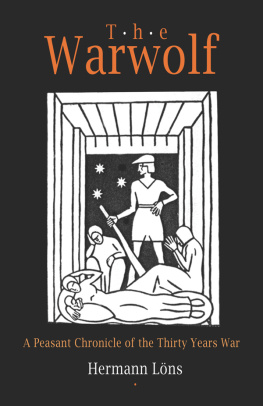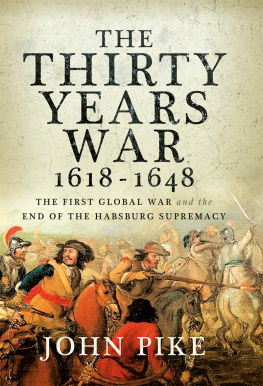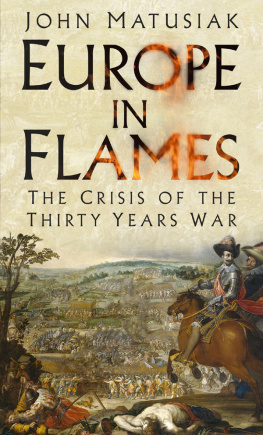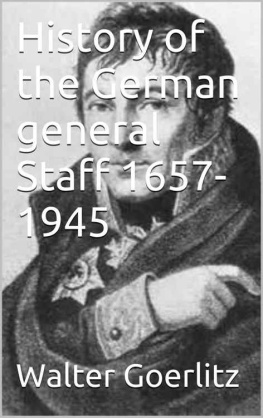I would also like to acknowledge my good friend, Steve Biederman, for his invaluable feedback and encouragement.
Translators Preface
The period of German history known as the Thirty Years War (1618-1648) can be described as an attempt by the German Protestant princes to remove themselves from the political and religious yoke of the Holy Roman Empire, as epitomized by the Catholic Hapsburg ruling elite. Foreign powers, especially France and Sweden, found political and economic advantages to be gained at the expense of both sides, making a prolonged and unconventional conflict inevitable. The general disorganization of the collective nobility in Germany and the range of religious and economic motives of opportunistic individuals and various strongmen and power brokers spelled disaster for the nation, especially its peasantry. The latter would be for three decades at the mercy of numerous domestic and foreign armies-many of which were comprised of mercenaries who, unchecked by local authorities and unpaid for long periods, ruthlessly scoured the countryside. Added to this mayhem was the general lawlessness of bands of marauders and desperate mobs of the newly displaced and impoverished. The loss of life during the Thirty Years War has been estimated at one-fifth the German population (some 21 million in 1618), while many authorities contend that the number is closer to one-third, including those who perished in battle or from disease, deprivation, and rapine. Such trauma upon civilian populationswould not be matched for another 300 years, until the 20th centurys world wars, which some historians have called The Second Thirty Years War.
The results of the Thirty Years War upon Europe are briefly (and admittedly too simply) summarized as the decline of the Hapsburg Dynasty and any viable semblance of a Holy Roman Empire, a greater degree of religious toleration between Catholics and Protestants (in so much as the peace of Westphalia marked the end of what might be termed religious wars, but also the beginning of a separation between Austria and Northern Germany among religious lines), and political settlements and alliances which would make France the dominant continental power for centuries to come. Focusing upon Germany alone, the Thirty Years War was unparalleled in its deleterious effects upon agriculture, industry, and commerce. The tremendous loss of life, and especially the vicissitudes endured by those who survived, would be indelibly etched upon the German psyche.
Yet for all the nonfiction resources available, it is in Hermann Lns historical novel, Der Wehrwolf (The Warwolf), first published in 1910, where the human perspective is made manifest; the tragedy and horrors of war in general and these times in particular. The novel chronicles the life of Harm Wulf and his North German farming communitys struggle for survival and how Wulf and his fellow farmers are forced to make difficult choices in order to protect their homes and families. An immediate bestseller in Germany, Lns novel remains in print in Germany and other European countries nearly a century after it first appeared and has sold more than one million copies.
Born on August 29, 1866 in Kulm, West Prussia, Hermann Lns, the son of a schoolteacher, spent his university years studying medicine and natural sciences. But the failure to complete his education caused a falling out with his family,and so he pursued poetry and journalism as a livelihood. His personal and professional life remained in turmoil with job instability, a divorce from his first wife, and bouts with alcoholism and depression. In 1901, he began to establish his reputation as Poet Of The Heath with the publication of My Golden Book and My Green Book. Later that decade, he turned to writing short stories and novels which encompassed themes and symbolism of ancient Germanic and Christian folklore, naturalism, and peasant life, particularly the landscape, wildlife, and people of his native Lneburger Heath of Lower Saxony. With the outbreak of World War I, Hermann Lns volunteered for military service at the age of 48. He was killed in frontline battle near Loivre, France, on September 26, 1914.
CHAPTER 1
The Heathland Farmers
In the beginning the heathland was desolate and unsettled. By day the eagle had dominant say over the skies, by night the owl. Bear and wolf were lords of the land and held sway over every other creature. No man challenged them; a few wretched primitives were content to eke out their subsistence by hunting or fishing, and gladly avoided contact with those beasts.
Then one evening other people arrived, folk of bright face and flaxen hair. They came with horse and wagon, kith and kin, hound and poultry. The heath suited them, for they had come from a place where ice was still on the ponds in May, and the snow fell again already in October. Every man sought a homestead for himself, then built upon it a broad house with pointed roof, covered in reeds and sod, and whose gables boasted a pair of colorful wooden horse heads.
Each farm lay off on its own. Rearmost on the heath lived Heinke; his neighbor was Hingst; next followed Marten, andthen Hinnig; thereafter Hors, then Bock and Bolle and Otte and Katz and Duw and Specht and Petz and Ul, as they were all called. Finally Wulf, a large man with merry eyes and resounding voice, who settled near the break where the bogs, marshes and deep woods began.
The Wulfstead had the best pastureland of all the farms, but that farmer also had the most business with bear and wolf, and with the savages who lived beyond the break. But that suited him fine, and his sons no wit less; the livelier things got, the better they liked it! And thus they grew into fellows built like trees, with hands like bear paws, yet nonetheless liked by all for their forthright nature and merry disposition as they faced the world with little guile and much laughter.
These traits served them well, and their children, and their childrens children; for it occurred often enough that things got wild in the moors. Strange folk sometimes trekked through, and the heathlanders had to stay keenly vigilant, lest they be overrun.
Thus their numbers grew from century to century in dringen, as the village came to be called. They stood firm and repelled their enemies outright, or hid the women, children and livestock in a walled fortress deep within the break, and then set upon the interlopers by raid and ambush until the foe once again made himself scarce.
The men of the Wulfstead always came to the fore. Sometimes one of them would fall with an arrow in the neck or a spear in the chest; but another would always survive to keep the name going.
Meanwhile they put ever more land to the plow and turned the heath into meadows and pastures. The farmsteadtallied ten buildings and lay like a castle behind wall and moat among the oak hedges, and whose large farmhouse contained no lack of weaponry and all sorts of equipment.








